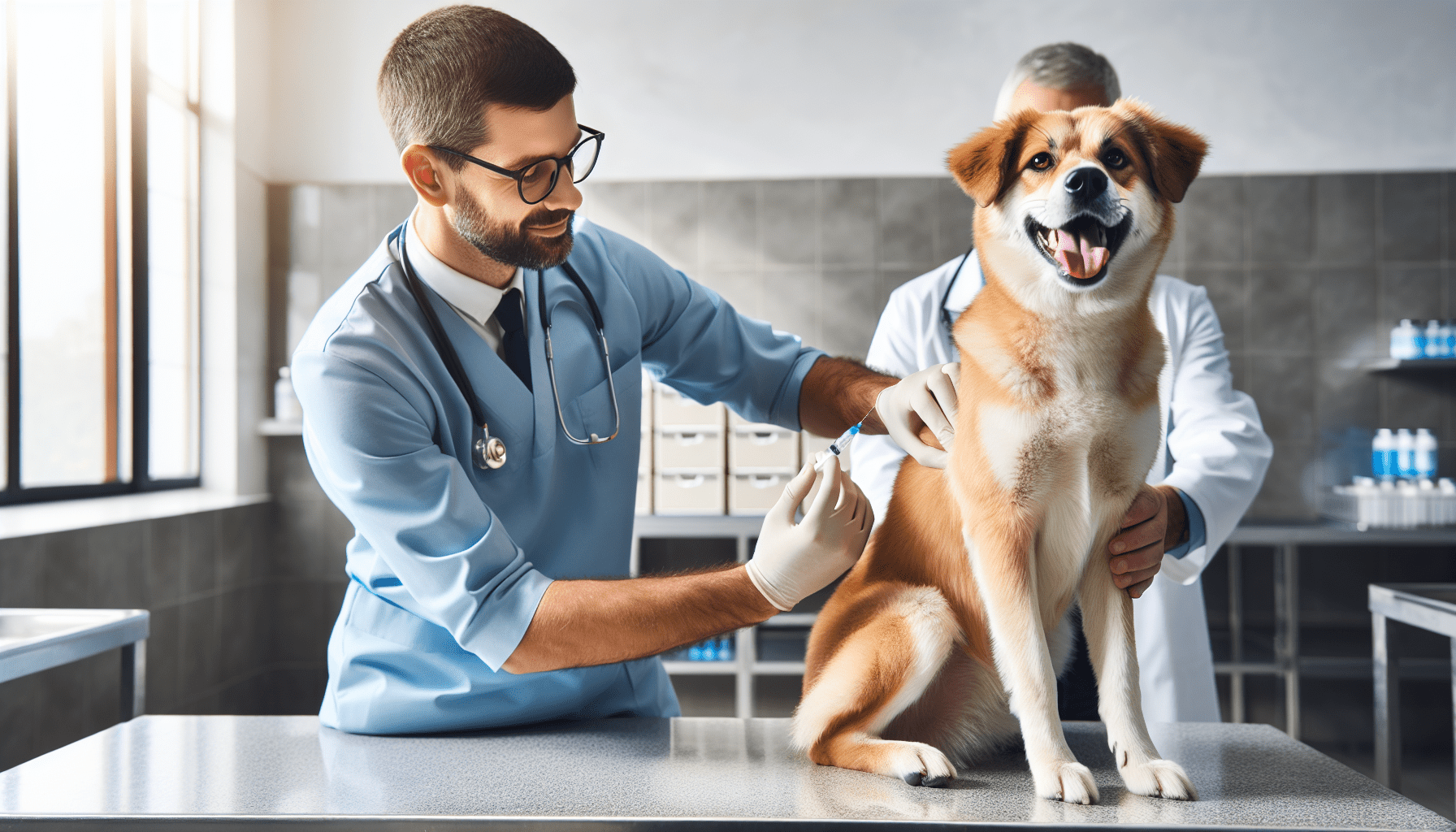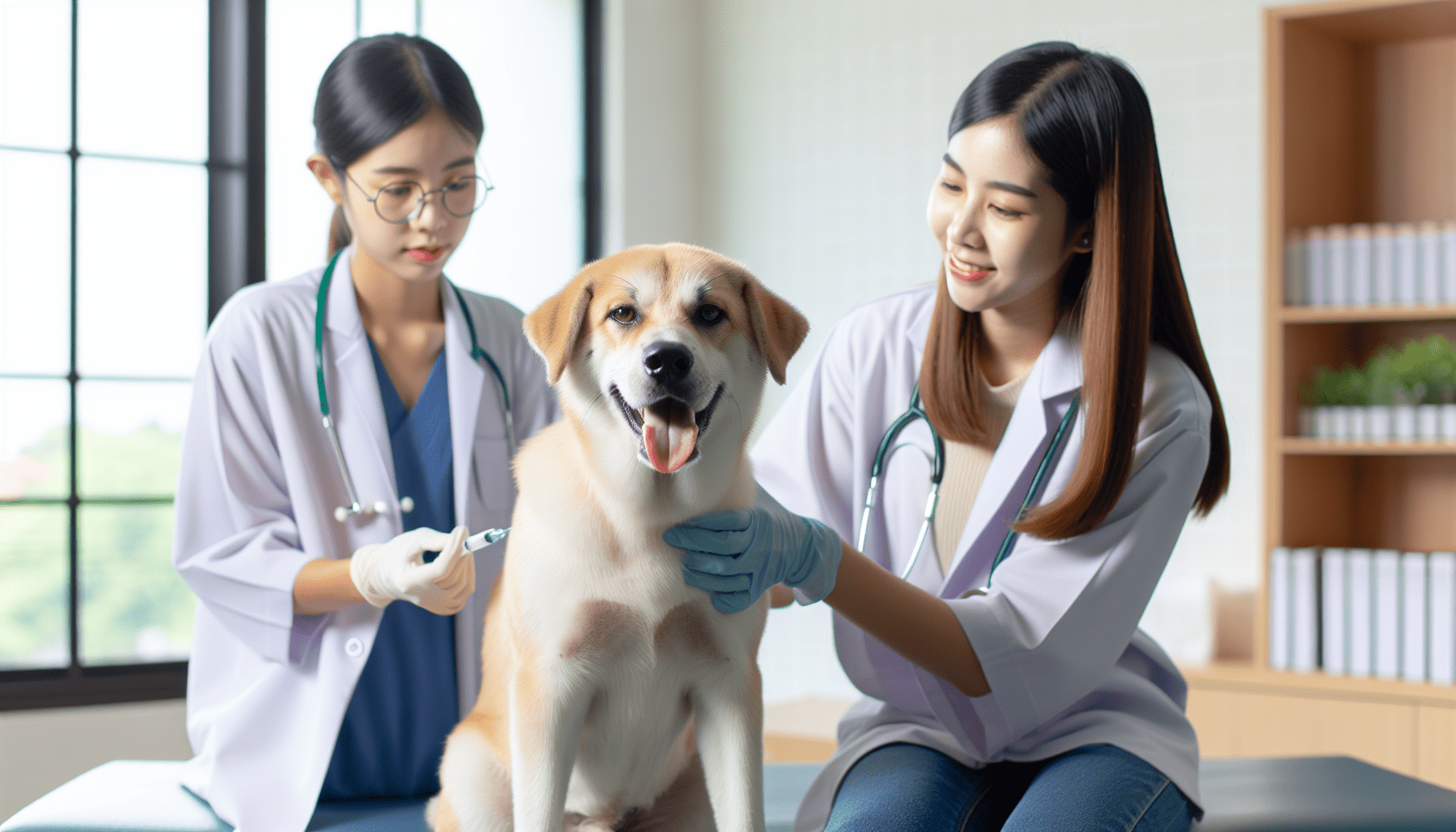Welcome to an informative article that highlights the importance of proper vaccinations for your beloved furry friend. Ensuring that your dog is up to date on vaccinations is essential in protecting their health and preventing the spread of serious diseases. From distemper to rabies, these vaccines play a crucial role in keeping your pup happy and healthy for years to come. Learn more about why staying current on vaccinations is a vital part of responsible pet ownership. Have you ever wondered about the importance of vaccinations for your furry companion? As a responsible pet owner, you want to ensure that your dog is healthy and protected from preventable diseases. In this article, we will discuss the significance of proper vaccinations for your dog and how they can help keep your canine friend safe and healthy.

Understanding the Basics of Dog Vaccinations
Vaccinations are essential for your dog’s health because they help prevent serious and potentially fatal diseases. Just like humans, dogs can be susceptible to various illnesses, and vaccinations are a critical way to protect them. By exposing your dog’s immune system to a small and safe amount of a disease-causing agent (a vaccine), you can help their body develop immunity against the disease. This means that if your dog comes into contact with the disease in the future, their immune system will recognize it and be better equipped to fight it off.
How Dog Vaccinations Work
When a dog receives a vaccination, it triggers their immune system to produce antibodies that can recognize and attack specific viruses or bacteria. This process prepares your dog’s body to fight off the disease if they are ever exposed to it. Vaccinations are usually given as injections, and they can protect your dog from a wide range of illnesses.
Vaccines can be either core or non-core. Core vaccines are necessary for all dogs because they protect against diseases that are widespread, highly contagious, and can be severe or fatal. Non-core vaccines are recommended based on your dog’s lifestyle, environment, and risk of exposure to specific diseases. Your veterinarian can help you determine which vaccines are essential for your dog based on their individual needs.
The Importance of Vaccination Schedule
One of the key aspects of proper vaccinations for your dog is following a vaccination schedule recommended by your veterinarian. Puppies require a series of vaccinations to build immunity and protect them during their early months of life when they are most vulnerable to diseases. It is crucial to start vaccinations early and keep up with regular booster shots to ensure that your dog remains protected throughout their life.
Puppy Vaccination Schedule
Here is a typical vaccination schedule for puppies:
| Age | Vaccines |
|---|---|
| 6-8 weeks | Distemper, Parvovirus, Hepatitis, Parainfluenza |
| 10-12 weeks | DHPP booster, Bordetella |
| 14-16 weeks | DHPP booster, Rabies |
It is important to follow this schedule and discuss any concerns or questions with your veterinarian. By keeping up with vaccinations during your dog’s puppyhood, you are setting them up for a healthy and disease-free life.
Adult Dog Vaccination Schedule
Once your dog reaches adulthood, they will need regular booster shots to maintain their immunity. The frequency of these booster shots may vary depending on the vaccine and your dog’s specific needs. Your veterinarian will recommend a vaccination schedule tailored to your dog’s lifestyle and risk factors.
Common Dog Vaccines
There are several core and non-core vaccines that are commonly administered to dogs to protect them from a range of diseases. Here are some of the most common dog vaccines:
Core Vaccines
-
Rabies Vaccine: Rabies is a deadly virus that can be transmitted to humans and other animals through the bite of an infected animal. The rabies vaccine is required by law in most states because of the serious public health threat it poses.
-
Distemper Vaccine: Canine distemper is a highly contagious and potentially fatal viral disease that affects a dog’s respiratory, gastrointestinal, and nervous systems. The distemper vaccine is essential for all dogs.
-
Parvovirus Vaccine: Canine parvovirus is a severe and highly contagious viral disease that can cause vomiting, diarrhea, dehydration, and death in dogs. The parvovirus vaccine is crucial for preventing this devastating disease.
Non-Core Vaccines
-
Bordetella Vaccine: Bordetella bronchiseptica is a bacterium that can cause kennel cough, a contagious respiratory infection in dogs. The Bordetella vaccine is recommended for dogs that are frequently in contact with other dogs, such as at boarding facilities, grooming salons, or dog parks.
-
Leptospirosis Vaccine: Leptospirosis is a bacterial disease that can be transmitted to dogs through contact with contaminated water or soil. The leptospirosis vaccine is recommended for dogs that are at risk of exposure to the Leptospira bacteria.
Risks and Side Effects of Dog Vaccinations
While vaccinations are crucial for your dog’s health, they can also come with risks and potential side effects. It is essential to be aware of these risks and discuss them with your veterinarian to make informed decisions about your dog’s vaccinations.
Common Side Effects
-
Mild Discomfort: It is normal for dogs to experience mild discomfort at the injection site after receiving a vaccine. Your dog may be sore, lethargic, or have a slight fever for a day or two.
-
Allergic Reactions: Some dogs may have an allergic reaction to a vaccine, although this is rare. Signs of an allergic reaction may include hives, swelling, difficulty breathing, or vomiting. If you notice any of these symptoms, seek veterinary care immediately.
Less Common Risks
-
Vaccine Failure: In some cases, a vaccine may not provide the expected level of immunity, leaving your dog susceptible to the disease. This can happen due to improper storage or administration of the vaccine, as well as individual variations in immune response.
-
Vaccine-Associated Sarcoma: While extremely rare, some dogs may develop a type of cancer called vaccine-associated sarcoma at the injection site. This risk is higher with certain vaccines, such as the rabies vaccine, but the overall incidence is very low.

Conclusion
Ensuring that your dog is up-to-date on their vaccinations is an essential part of responsible pet ownership. Vaccines protect your dog from serious and potentially deadly diseases, helping them live a long and healthy life. By following a recommended vaccination schedule and staying informed about the risks and benefits of vaccinations, you can make the best decisions for your furry companion. Talk to your veterinarian about the vaccines that are necessary for your dog based on their age, lifestyle, and individual needs. Your dog will thank you for keeping them safe and healthy with proper vaccinations.

